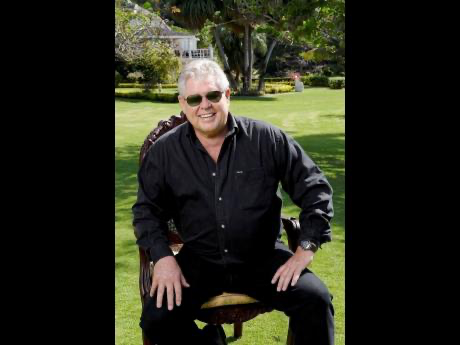(Jamaica Gleaner) More trouble is brewing involving the will of late business mogul Gordon ‘Butch’ Stewart, after the Sandals hotel group delayed a final cash payment of more than J$6 billion to a group of mostly elderly beneficiaries.
They are reportedly contemplating a series of actions, including a lawsuit, to force Sandals to provide a specific reason for pushing back the payments due last month, by a further 12 months.
King’s Counsel Michael Hylton, who represents some of the nine beneficiaries, has declined to speak on the development.
“A public comment at this time would be premature,” he told The Sunday Gleaner. He is from the firm Hylton Powell.
The Levy Cheeks law firm is also representing some of the beneficiaries.
“Unfortunately, I am not in a position to comment,” attorney Bruce Levy, of Levy Cheeks said in response to Sunday Gleaner queries yesterday.
Butch, the founder of Sandals Resorts International (SRI) and the ATL Group, died in January 2021.
Adam Stewart, one of his sons and long-considered heir, took over as executive chairman of the hotel group, one of the largest private employers and foreign exchange earners in Jamaica.
However, a bitter dispute has emerged in the Stewart family over the handling of the billionaire’s estate and Adam’s approach to ensuring that his father’s wishes are implemented.
Butch left mainly two sets of instructions for his assets.
One set related to how two Bahamian trusts, which control most of his wealth and the hotel business, are to be handled. One disputed wish in the trusts would strip Adam of significant say in the Sandals hotel chain and give his United States-based family, as a unit, the largest stake in the company.
That has been challenged by most of the Jamaica-based family, including Adam.
A brother, Robert ‘Bobby’ Stewart, from the Jamaican family, supports a claim in Bahamian courts by Butch’s common-law widow, Cheryl Hammersmith-Stewart, who leads the case for the American family.
Butch’s will, dated May 15, 2020, contains the other set of instructions that relate to assets held in Jamaica.
US$95 million be paid out
He instructed that a total of US$95 million be paid out in cash to nine individuals, mostly relatives and close associates of many decades. His sister Patricia Hawryluk, who is reportedly ailing, is among the beneficiaries.
Two of the beneficiaries, Butch’s first wife Erica Hamilton, and Roger Seivwright, have since died.
The allocations per person range from US$2.5 million to US$20 million.
Using the Bank of Jamaica’s annual weighted selling average for 2020, when the will was signed, of J$143.27 for US$1, the total figure of US$95 million amounts to approximately J$13.7 billion.
About 50 per cent of the amount has already been paid out.
In section eight of the will, Butch said if there were problems with making the payments out of a trust, the funds should be taken from his estate and, if that becomes necessary, payment “shall be charged on the Sandals and Beaches Group”. He said his trustees may even borrow money “in the name of Sandals & Beaches Group alone or jointly with any of its subsidiaries and may cause such borrowing to be secured” using the assets of the group or subsidiaries.
Most of the Butch’s assets are not in his name and there was reportedly limited cash in the Jamaican estate.
To avoid potential legal pressure from the beneficiaries in demanding an examination of the wider estate’s finances, Sandals proposed the establishment of a foundation to manage payments, The Sunday Gleaner understands.
The payment vehicle was established as ‘The Gordon A.C. Stewart Estate Legatee Foundation’. It struck a funding agreement with the Sandals Resorts International 2000 Inc, which would provide money to the foundation for it to make payments to the beneficiaries.
Some of the money was paid with the balance due by April 2024, based on a promissory note issued to the beneficiaries.
However, Sandals informed the foundation in a letter dated April 10, 2024 that it was exercising its right to trigger the delay clause in the agreement for the payment of the second instalment to the foundation “until such time as the negative impact of the delay trigger is no longer a material threat to SRI 2000, but in no event later than April 24, 2025”.
“The board of directors of SRI2000 has determined that one or more delay triggers currently exist,” SRI said through its attorneys from the American law firm Latham & Watkins, LLP.
Liability and
material disruption
The specific issue that forced the action was not disclosed in the letter obtained by The Sunday Gleaner.
“These delay triggers consist of matters outside of SRI 2000’s control which have resulted in liability and material disruption to SRI 2000 and which make payment of the second instalment materially onerous to SRI 2000,” the lawyers wrote.
The foundation advised the beneficiaries, also referred to as the pecuniaries, on April 17.
The beneficiaries made enquiries on the issue that prompted the delay to WND Limited, which is listed on one of the documents as the sole member of the foundation’s council.
In a response to the beneficiaries on May 4, Ivan Hooper, who is listed as a director, said the foundation had no further information “nor will we be provided with any further feedback by SRI2000”.
“We were advised that it is the primary responsibility of management and the board of SRI2000 to ensure the economic health of the company and it is at its discretion to make this decision. That SRI2000 does not need to provide further details, nor do they have any responsibility to the pecuniaries to do so. This has been confirmed by SRI2000 counsel,” said Hooper, who is also a director of the Winterbotham Group, a Bahamas-based trust and banking company.
Questions emailed to the Sandals have not been answered.
The beneficiaries are discussing what further actions to take, including whether to file a lawsuit.
Among the considerations for legal action is where to file it – in Jamaica or The Bahamas; in addition to the age of the beneficiaries and the likely long time it could take to settle the issue in court, The Sunday Gleaner understands.










